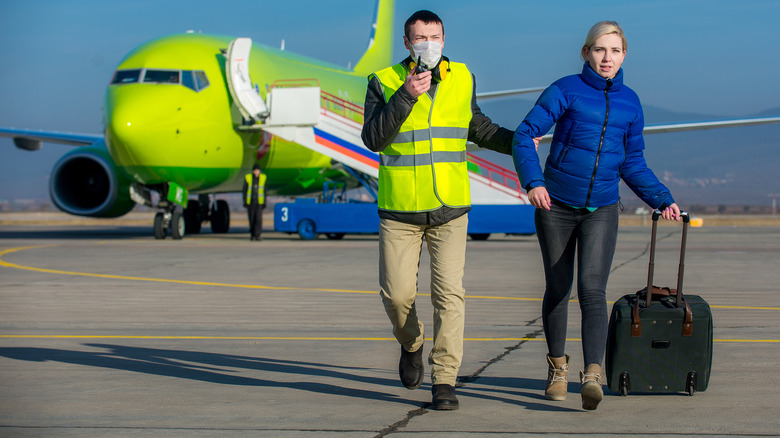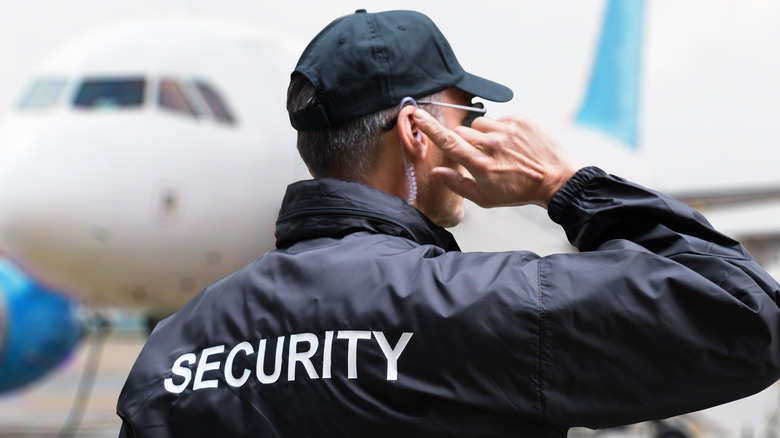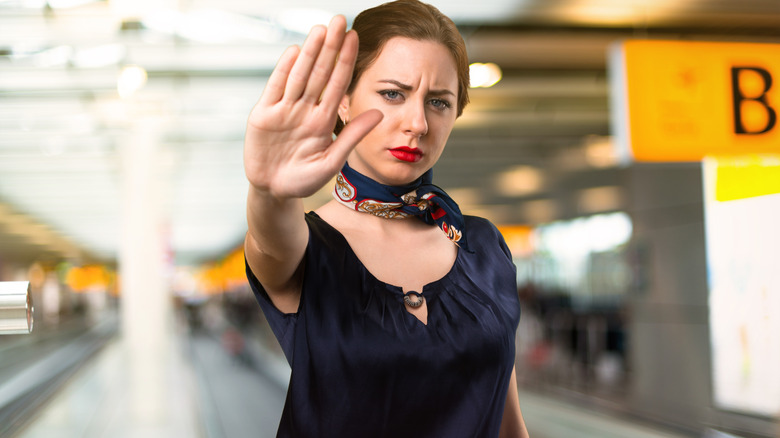Airlines Reveal Their New Plan To Handle Disorderly Passengers
While there are many mistakes passengers can make that cause flying to be more difficult, the biggest one is causing trouble on a flight. The aviation industry faces a serious challenge with the increasing number of disruptive incidents by unruly passengers, which has become a more significant issue since the pandemic. In 2022, the International Air Transport Association (IATA) reported one incident for every 568 flights. Adding to the concern, physical altercations increased by 61% compared to the previous year. In 2023, cases of unruly passengers referred to the Federal Bureau of Investigations (FBI) included smoking in planes' bathrooms, physical and sexual assaults on other passengers and crew members, and even terroristic threats.
Recently, discussions at the IATA World Security and Operations Conference in Vietnam highlighted the severity of this issue. The airline industry has developed a strategy to improve safety during flights and passengers' experience. A critical part of this plan is the Montreal Protocol 2014 (MP14), which helps airlines manage disorderly passengers, no matter where they come from. To support this protocol, the industry's strategy focuses on cooperation between different groups, better reporting of incidents, thorough training for cabin crew, and responsible alcohol service.
What is the Montreal Protocol 2014?
The Montreal Protocol 2014 (MP14) is a set of guidelines established by the aviation industry in 2014 to address unruly passenger behavior. The previous regulations only permitted legal action in the country where the airplane was registered. MP14 empowers the airplane's captain to take charge of any situation involving disruptive passengers. The captain can notify the authorities upon landing, making handling such incidents more efficient and faster. MP14 clearly defines disruptive behavior, which includes physical violence, threats, or any action that interferes with the crew's duties, making it easier to take legal action and safeguard both the crew and passengers.
MP14 also acknowledges the risks cabin crew and airport security personnel face during such incidents. The protocol extends legal protection to them, ensuring that they can do their jobs safely. However, it covers only about one-third of global passenger traffic. The aviation industry wants more countries to adopt these rules to improve safety and clarity for everyone.
Government and airline collaborative measures
The proposed strategy highlights four key areas where governments can help make flying even safer by strengthening the deterrent against unruly and disruptive behavior. The four key areas include effective prosecution, enhanced training, improved coordination, and better communication. Governments should ensure that unruly passengers face the full force of the law. Airlines should provide their staff with the necessary training to identify and manage unruly passengers. Governments and airlines should collaborate to share information and coordinate efforts to prevent and manage unruly behavior. Airlines should communicate clearly with passengers about what is expected of them and the consequences of unruly behavior.
In addition, the Protection from Abusive Passengers Act was reintroduced in Congress in March 2023. If passed, the bill would create a national no-fly list for passengers who participate in in-flight violence. This would help airlines to identify and prevent unruly passengers from boarding flights, making air travel safer for everyone.


